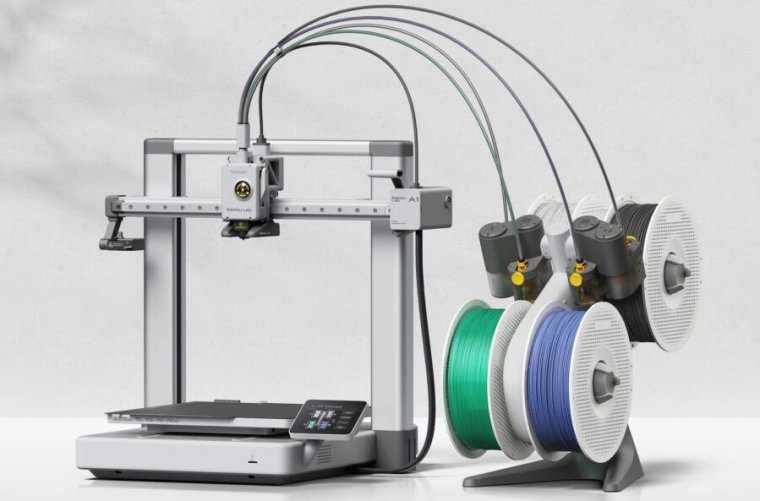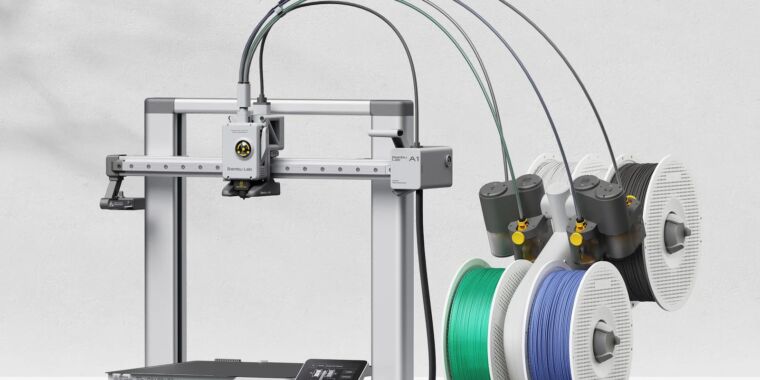Stratasys sues Bambu Lab over patents used widely by consumer 3D printers

Bambu Lab
A patent lawsuit filed by one of 3D printing’s most established firms against a consumer-focused upstart could have a big impact on the wider 3D-printing scene.
In two complaints, (1, 2, PDF) filed in the Eastern District of Texas, Marshall Division, against six entities related to Bambu Lab, Stratasys alleges that Bambu Lab infringed upon 10 patents that it owns, some through subsidiaries like Makerbot (acquired in 2013). Among the patents cited are US9421713B2, “Additive manufacturing method for printing three-dimensional parts with purge towers,” and US9592660B2, “Heated build platform and system for three-dimensional printing methods.”
There are not many, if any, 3D printers sold to consumers that do not have a heated bed, which prevents the first layers of a model from cooling during printing and potentially shrinking and warping the model. “Purge towers” (or “prime towers” in Bambu’s parlance) allow for multicolor printing by providing a place for the filament remaining in a nozzle to be extracted and prevent bleed-over between colors. Stratasys’ infringement claims also target some fundamental technologies around force detection and fused deposition modeling (FDM) that, like purge towers, are used by other 3D-printer makers that target entry-level and intermediate 3D-printing enthusiasts.
Bambu Lab launched onto the 3D-printing scene in 2022, quickly picking up market share in the entry-level and enthusiast space, in part due to its relatively fast multicolor printing. It hasn’t had an entirely smooth path to its market share, with a cloud-based force printing fiasco in the summer of 2023 and a recall of its popular A1 printer for heat issues earlier this year.
Stratasys, by contrast, has been working in 3D printing since 1988, and its products are used more often in manufacturing and commercial prototyping. Its 3D printers were part of how General Motors pivoted to making face shields and ventilators during the COVID-19 pandemic. Its acquisition of MakerBot led to layoffs two years in and eventually a spin-off merger with Ultimaker, but Stratasys retained MakerBot’s patents.
Another patent lawsuit filed by a larger prototyping firm against a smaller semi-competitor was settled in 2014. 3D Systems sued Formlabs in 2012 over patents regarding laser-based stereolithography. That suit ended with Formlabs agreeing to pay an 8 percent royalty on all sales to 3D Systems. Stratasys had also previously sued another smaller-scale printing firm, Afinia, in 2013, although that case eventually failed.
Listing image by Bambu Lab

